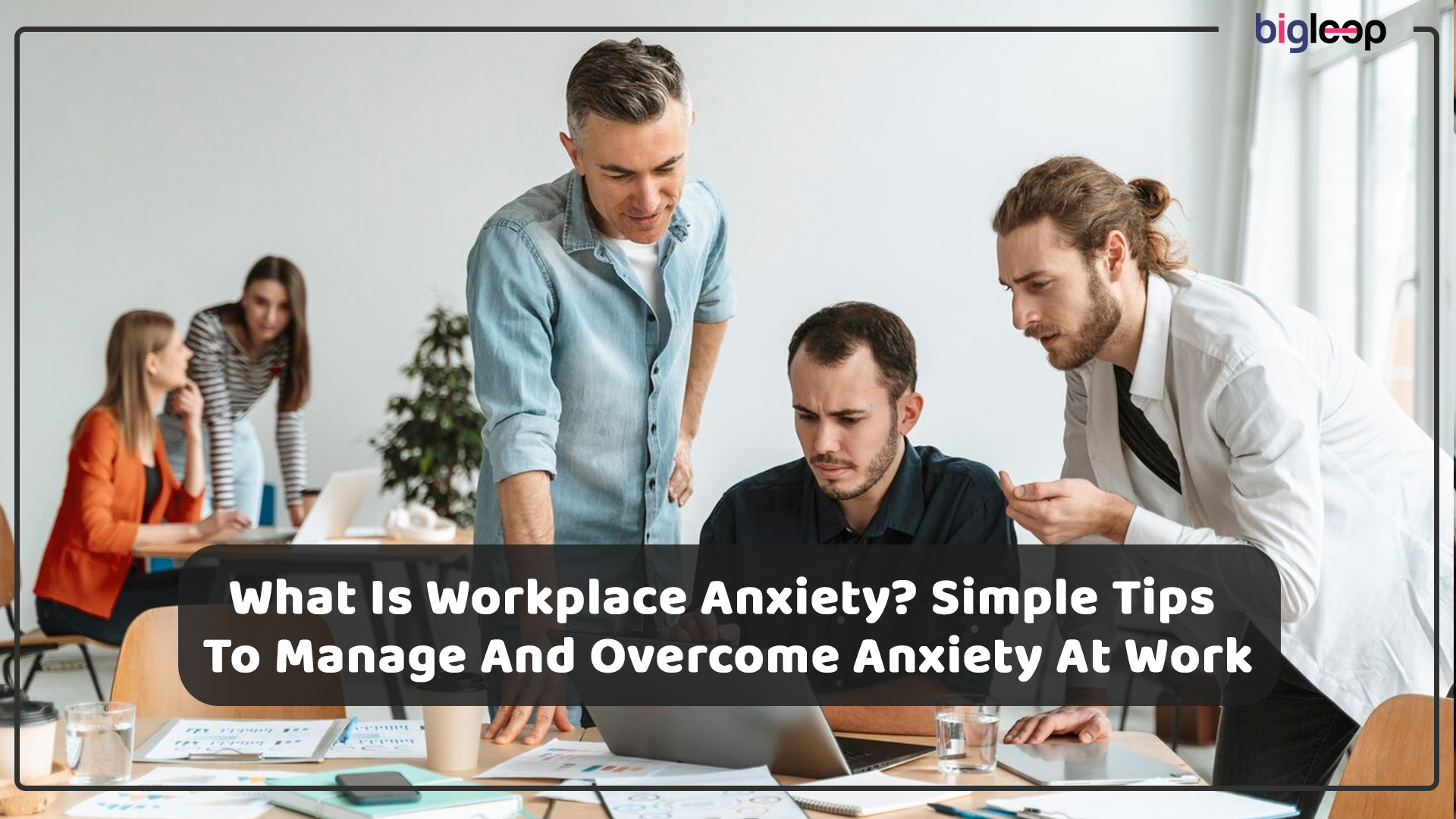

Many job tasks now require multitasking, meeting short deadlines, and collaborating with various team members to achieve a common goal. Some people may become uneasy or anxious in certain situations. Understanding anxiety and knowing how to manage it while at work can help you reach your goals and maintain good health.
If you find yourself feeling anxious at work, realize that it occurs to everyone and it’s entirely normal. But if you recognize that stress is frequent, overpowering, and restricts you from living your life, it might be a sign of anxiety.
Having anxiety at work may have a major influence on you and your career. People who are anxious at work may even make career decisions based on this anxiety. For example, you may feel forced to decline a promotion if it requires more management, public speaking, or travel to new locations.
Anxiety can be a feeling of uneasiness, stress or worry. You can feel anxious while dealing with hurdles and making major changes, such as beginning a new employment or degree program. There are a variety of challenges in the job that might cause anxiety.
You may feel anxious if you have a heavy workload, a deadline to meet, or if you need to engage a coworker about a conflict. Knowing how to manage these feelings can help you improve your mental health and ensure success at work. Common effects of having job anxiety include:
Work anxiety, regardless of the source, may have far-reaching consequences in your life, both at work and outside of it. If you suffer from work anxiety, you may feel less secure in your position, stopping you from taking on new duties or volunteering for advancement possibilities.
Work anxiety can sometimes become a self-fulfilling speech, in which you become so concerned about missing deadlines that you are unable to perform at work, resulting in missed deadlines.
Other consequences of job anxiety are:
It's difficult to overcome something you're not aware you have. If you've recently felt stressed at work or are experiencing physical or psychological symptoms associated with your job, you can be suffering from work anxiety.
We created a list of the most common symptoms of work anxiety. Take a look and see if any of them seem familiar. Once you’ve named what you’re experiencing, you’ll be on the route to finding a solution.
Identify Triggers: Recognize particular events, tasks, or interactions that cause anxiety. Understanding the core issues might help you handle them more effectively.
Break Tasks Into Manageable Steps: Break down enormous projects into smaller, more doable steps. This can make the workload feel less overwhelming and allow you to focus on one task at a time.
Time Management: Prioritize tasks and develop a realistic plan. Avoid overcommitting and set realistic deadlines to reduce time-related stress.
Set Realistic Expectations: Set achievable objectives and expectations for yourself. Stay away from perfectionistic goals, as this can lead to worry.
Practice Stress-Reduction Techniques: Incorporate stress-management practices into your daily routine, such as deep breathing, mindfulness, meditation, or progressive muscle relaxation.
Physical Activity: Regular exercise can improve mental health. Incorporate physical activity into your daily routine to help relieve tension and anxiety.
Healthy Lifestyle Choices: Maintain a healthy diet, get enough sleep, and limit your caffeine and alcohol usage. These characteristics might have an impact on your general health and stress tolerance.
Open Communication: Inform your boss or coworkers about your worries. Open communication may lead to better understanding and support, as well as assist uncover stress-relieving options.
Set Boundaries: Set clear boundaries between your professional and personal life. Avoid carrying work-related worries home, and make time for leisure and hobbies.
Seek Professional Help: If anxiety becomes overpowering, get help from a mental health professional. Therapists or counsellors can offer coping skills and assistance that are suited to your specific requirements.
Employee Assistance Programs (EAP): Check to see whether your workplace offers Employee Assistance Programs. EAPs frequently offer confidential counselling services to workers, addressing a variety of personal and work-related difficulties.
Mindfulness Practices: Mindfulness techniques, such as meditation or yoga, can help you concentrate your attention on the present moment and reduce stress.
Learning and Skill Development: Acquire new talents or improve old ones to build confidence in your abilities, potentially lowering worry over job performance.
To overcome the obstacles of anxiety at work, it is essential to understand how to deal with anxiety and stress. You may reduce workplace stress by using proactive techniques, practising mindfulness, and encouraging open communication. Take control of your health and turn workplace worries into an opportunity for personal and professional development.
© 2025 BigLeep All rights reserved. Powered by Mify Solutions Pvt. Ltd.